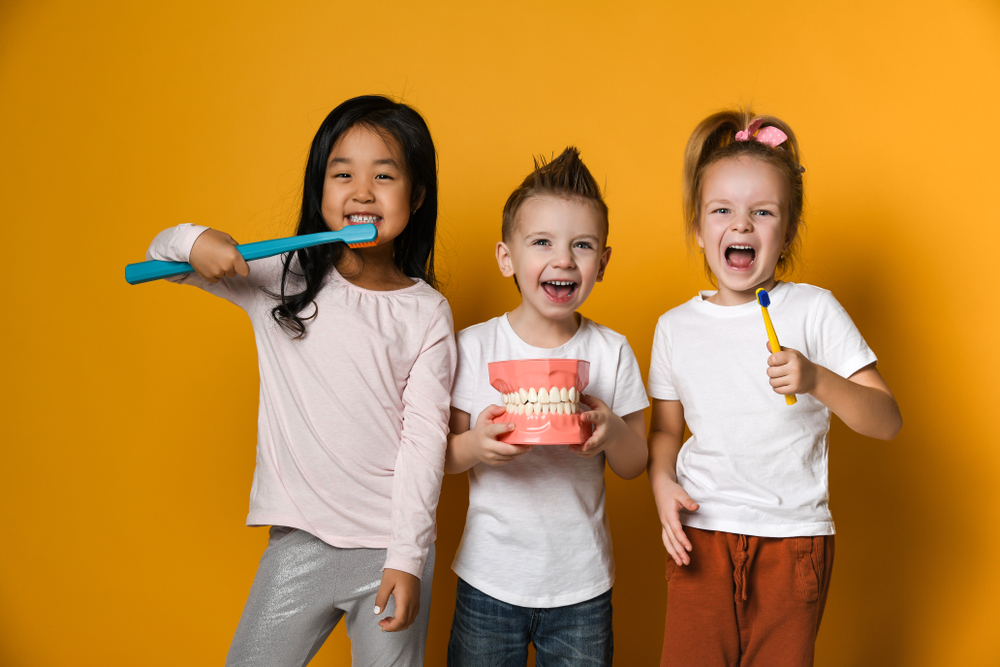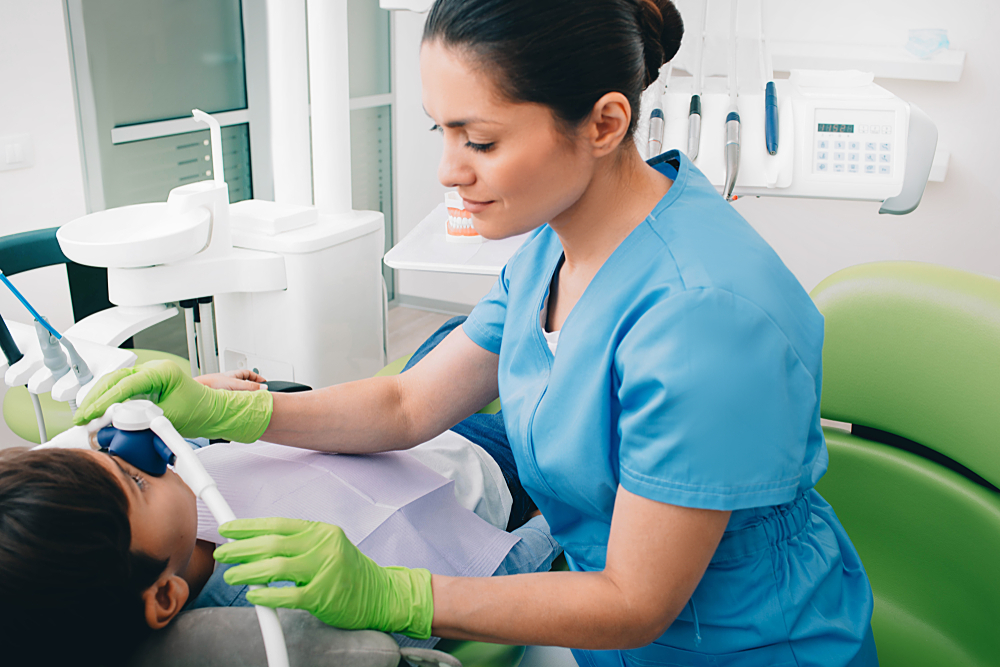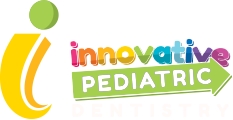

What are the Different Types of Dental Sedation for Kids?
Kids are sometimes afraid of the dentist or certain dental procedures. This is typically a fear of the unknown. Going to a kid-friendly, fun pediatric dental practice like Innovative Pediatric Dentistry can go a long way in putting children at ease. Once little ones get used to the dental office, their dental anxiety tends to subside.
However, for children with a severe dental phobia, those who are very young and need extensive dental work or children with special needs who would struggle with dental procedures, sedation dentistry is an option. Sedation can help kids feel relaxed and comfortable during their treatment, allowing them to safely get the care they need. Depending on the type of dental sedation used, they may not even remember the procedure, which can also prevent them from developing dental anxiety.
Our Naperville pediatric dentists offer different types of sedation for kids. To help give you a better idea of the ins and outs of pediatric sedation, we’ll be covering:
-
The types of sedation for kids
-
When should kids be sedated for dental work?
-
Is dental sedation safe for a child?
-
Will my child have sedation dentistry side effects?
-
Preparing your child for dental sedation
The Types of Sedation for Kids
There are various levels of sedation dentistry, ranging from mild sedation like nitrous oxide, or laughing gas, to general anesthesia. The types of sedation for kids include:
-
Oral Conscious Sedation – With this form of sedation, the pediatric dentist prescribes an oral sedative for your child, which can offer mild to moderate sedation, depending on the type of medication and dosage. Kids will be conscious during the procedure, though they may fall asleep, and able to move and respond to commands. There have been some concerns about the safety of oral conscious sedation for children, and we actually do not offer it at our practice, but it is an option at some dental offices.
-
Nitrous Oxide – Nitrous oxide sedation is mild, safe, doesn’t put patients to sleep and wears off quickly. We deliver a mixture of nitrous oxide and oxygen to your child through a mask. They breathe it in for a few minutes and will feel relaxed, calm, euphoric and a little bit silly. When using laughing gas for kids, patients are awake and able to respond to commands. Not only does laughing gas reduce anxiety, it also dulls discomfort. When we’re done, your child will breathe in plain oxygen and the effects of the nitrous oxide will wear off in a few minutes.
-
General Anesthesia – Occasionally if treatment can’t be done safely while a child is awake and laughing gas won’t be effective, general anesthesia can be used. Anesthesia will be administered under the direction of a board-certified anesthesiologist and your child will be monitored throughout the procedure. While under general anesthesia, your child will be in a deep sleep. They won’t be able to feel or remember the procedure at all.
At our practice, we offer nitrous oxide for kids, as well as in-office general anesthesia. We’ve found these options to be the most effective and safe.
When Should Kids Be Sedated for Dental Work?
As for when kids should be sedated for dental work, every child is unique. At Naperville Pediatric Dentistry, we generally try to use behavioral and relaxation techniques first. If these approaches aren’t effective, then that is when we’d consider sedation dentistry. Sedation might be needed for:
-
Kids with severe dental anxiety
-
Young children, such as infants or toddlers, who need extensive restorative work that would require multiple visits without sedation
-
Children with special needs, including certain medical, emotional or behavioral considerations, whose actions or movements during dental procedures could cause them harm
-
Any child who would be unable to cooperate in order to receive the necessary dental care, such as those who have trouble sitting still or have an extreme gag reflex
In these instances, there are a number of benefits of dental sedation for kids:
-
Relaxes children, making the experience stress-free for the patient and parent
-
Dulls or eliminates pain sensations, depending on the type of dental sedation
-
Allows the dentist to perform lengthy, complex or sensitive procedures in one visit, as opposed to your child having to come in for multiple visits
-
With general anesthesia, children won’t remember the treatment, which helps reduce the likelihood that they’ll develop dental anxiety
-
Keeps kids safe from the accidental injuries that can occur if they struggle or move around during procedures
-
The pediatric dentist can more efficiently and effectively complete procedures, saving you time
Is Dental Sedation Safe for a Child?
If you go to an experienced dentist who uses the latest technology and techniques, then, yes, dental sedation is safe for a child. At our practice, our Naperville pediatric dentists are specially trained in pediatric dental sedation.
One of our dentists will examine your child, review their health history and go over the medications they take. They’ll spend time gaining an understanding of your child’s needs in order to determine if your child is a candidate for sedation. If they are, you’ll have peace of mind knowing that our state-of-the-art practice is outfitted with the latest monitoring equipment and tools and your child will be monitored throughout the entire procedure for maximum safety.
Additionally, when providing in-office general anesthesia, we have a board-certified anesthesiologist on staff who comes into the office for these specialty cases. The anesthesiologist and his team will deliver the anesthesia and keep tabs on your child’s vital signs while the dentist performs the necessary dental procedures.
Laughing gas for kids is the quickest, easiest solution. It’s been safely used as a form of sedation dentistry for over a century. In fact, the American Academy of Pediatric Dentistry says it, “recognizes nitrous oxide/oxygen inhalation as a safe and effective technique to reduce anxiety, produce analgesia, and enhance effective communication between a patient and health provider.”
While general anesthesia is more involved, thanks to advances in medicine and technology, receiving general anesthesia in the office under the guidance of an anesthesiologist is just as safe as it is in a hospital or surgical center. Since severe tooth decay or dental infection can have a significant impact on your child’s health and wellbeing, in many cases, the benefits of using general anesthesia in order for a child to receive essential care far outweigh the risks.
Will My Child Have Sedation Dentistry Side Effects?
Sedation dentistry side effects in a child will vary depending on the level of sedation. Let’s look at the two forms of sedation we use at our practice:
Side Effects of Laughing Gas for Kids
-
Most patients experience no side effects from nitrous oxide and once the gas wears off within a few minutes, they can go about their day as usual.
-
Inhaling too much nitrous oxide can cause short-term vomiting and dizziness. Since we use advanced technology at Naperville Pediatric Dentistry, we’re able to deliver the exact amount of laughing gas toddlers and children need, ensuring this doesn’t happen.
-
Some children feel a little tired after receiving nitrous oxide sedation. This is mild and will wear off quickly.
-
There are no long-term side effects. If you feel as if your child is experiencing any side effects that don’t disappear shortly, give our practice a call.
Side Effects of General Anesthesia Dental Sedation
-
Your child will likely be tired for up to a day following the anesthesia.
-
Your little one’s nose, mouth and throat might be numb for about 45 minutes after the procedure.
-
Some kids have a slightly sore throat for a day or two after receiving general anesthesia.
-
Children can experience dizziness or nausea.
-
Kids will have to rest and engage in minimal activity for the rest of the day after the procedure. Most are able to return to school or daycare the following day.
Preparing Your Child for Dental Sedation
It can be a good idea to talk with your child about what to expect with dental sedation, as well as the procedure itself, using terms they can understand. Avoid using words that could scare them such as “shot” or “drill.” Instead, let them know that the tooth doctor will be making their teeth healthy and strong and that they’ll either “feel silly” or “go to sleep” during the treatment.
If your child is still anxious about going to the dentist and being sedated, letting them bring a favorite stuffed animal or toy to the appointment can help them feel more secure.
Laughing gas for kids doesn’t require special preparations beforehand and a light meal prior to the visit is allowed.
If your kiddo is receiving general anesthesia dental sedation, your Naperville pediatric dentist will provide you with detailed instructions to follow in order to ensure the procedure is safe. While the instructions can vary depending on your child’s individual needs and level of health, generally, we recommend:
-
After midnight the night before the appointment, avoid giving your child any solid food or non-clear liquid, including milk and juice.
-
If your child is thirsty, they can have a few sips of water up until two hours before the appointment.
-
If your child takes daily medication, give it as usual unless we tell you not to.
Ready to Learn More About Dental Sedation for Kids in Naperville, IL?
If you’d like to get more information about the different types of sedation, including general anesthesia or laughing gas for kids, schedule an appointment for your child at Innovative Pediatric Dentistry! Our expert kids’ dentists offer safe sedation for children in a state-of-the-art practice. We’ll assess your child’s needs and go over the risks and benefits of sedation to help you make a confident, informed decision about your little one’s care.


